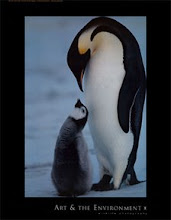Beyond the Walls of the Tar-Barrel
by
Nikolay
Todorov
The Existence as Contemplation
The poetic beginning of Jack
Harte’s novel gives expression to a life of an individual who has been cast
away from the community; an individual with a separate, complete personality, who
is capable of complicated and even at times paradoxical internal monologues. Despite
the slight contradiction with the real
story developing in the readers eyes (how is a person with such deformities capable of a so profound and at the same time both
poetic and crude discourse), the novel grabs the attention with its well paced
language and short and lapidary sentences and demonstrates the writer’s
storytelling abilities (and unorthodoxy). At some points it seems that the
author is even capable of observing himself from the outside.
The Rebelling Kind
The translation correctly
transmits the intonation of the rebel. No norms, authorities are allowed even
in the last moment of someone’s life, even in something like a ‘rite of passage’;
at least this is the direction in which the characters head; there is no more
space even for the Creator: it turns
out that the main character is rebelling also against the Christian God and the
idea of Him. The main reason is nevertheless a quite classical one ever since
David Hume and Gottfried Wilhelm Leibniz: what is generally considered as
injustice and evil and why does it exist if God is omnipotent. But although the
novel is anticlerical as well, it is not antireligious
(remember the passages of peace and love associated with the presence of the
Virgin Mary). The ‘rebellion passages’ are related with the personal fight
against convention, against the Wall of Life and the Wall of Death.
Existentialism perhaps?
At some unspecified point,
the novel starts to sound like an existentialist work (the hostile world with
its vastness and so on), or perhaps a work influenced by the theories of
Antonin Artaud and Boris Vian about violence and art. Nevertheless the
character is not completely alone. His
interior monologue which seldom reaches the outer audience is directed to
himself. The rest of the world seems if not chaotic, at least vulgar at many
moments, except for a cousin, a mother, a life-time teacher, a friend and a big
group of mostly anonymous followers. (As the translator of the novel into Bulgarian,
Mr. Vergil Nemchev correctly noted: ‘The world does not allow the authenticity
of the character. (...) Lofty is able to communicate only when he is a socially
acceptable figure.’)
Coup de chance
The Calvinist notion that the
one who follows his conscience and tries to do good will be paid for what he
has done, comes true. The main character is not able to read, write and even
talk (many times he gets stuck into a kind of a dystopian primary language) but
he almost turns into a saint in the classical Biblical meaning of the word – a
prophet taken for mad who belongs to another world and could easily be
condemned and burnt on the stake. The religious feeling turns out impossible to
resist to and despite his negative attitude, it leads Lofty to do good and to
recover his humbleness, although his truck turns into a temple (and at some
point literary crashes down).
Religiosity with a Twist
Finally, the Manichean believes
appear and reaffirm themselves again: that the body and the spirit take equal
parts of us, of the world and even of God. There is a kind of tradition in this
kind of understandings among the English intellectuals, for example the
notorious science fiction and dystopian writer Herbert George Wells. The
physical beauty and the carnal passion lead Lofty to rediscover the richness of
the world and to start ‘bringing beauty to the world’. The ‘saint’ and the
‘prostitute’, the ‘temple’ and the ‘brothel’, the ‘heavenly’ and the ‘earthly’
are now all situated on equal grounds. At some point even God is equalized with the Devil. And a challenge is thrown
against Him from the point of the almighty chaos (or chance) not afraid to be ‘stoned
to death’ like Mr. Jon McCreedy noticed). Does he also feel hope and desperation;
is he also a victim of Fate (for example like the ancient Greek gods)? Is there
a betrayal to the human being? Is life so
elusive and futile? There is a chaos at the beginning and at the end, though
not so vain and hopeless.
„Размишления в катраненото буре“ от Джак Харт



